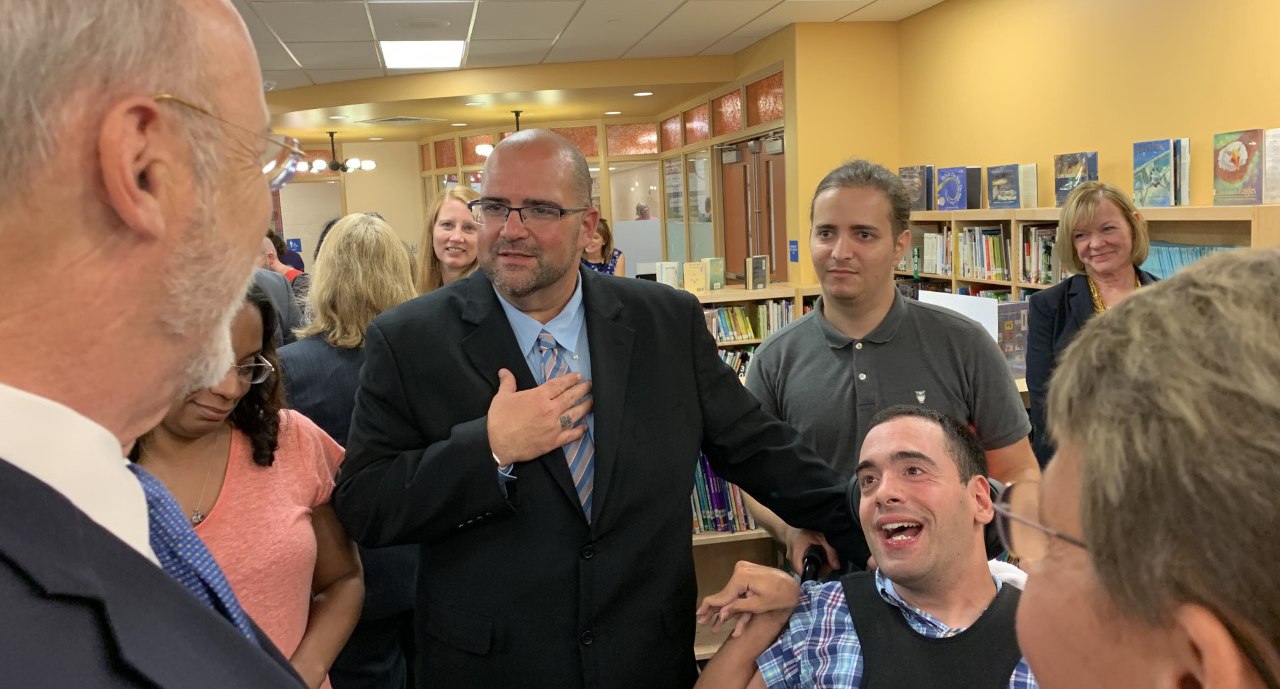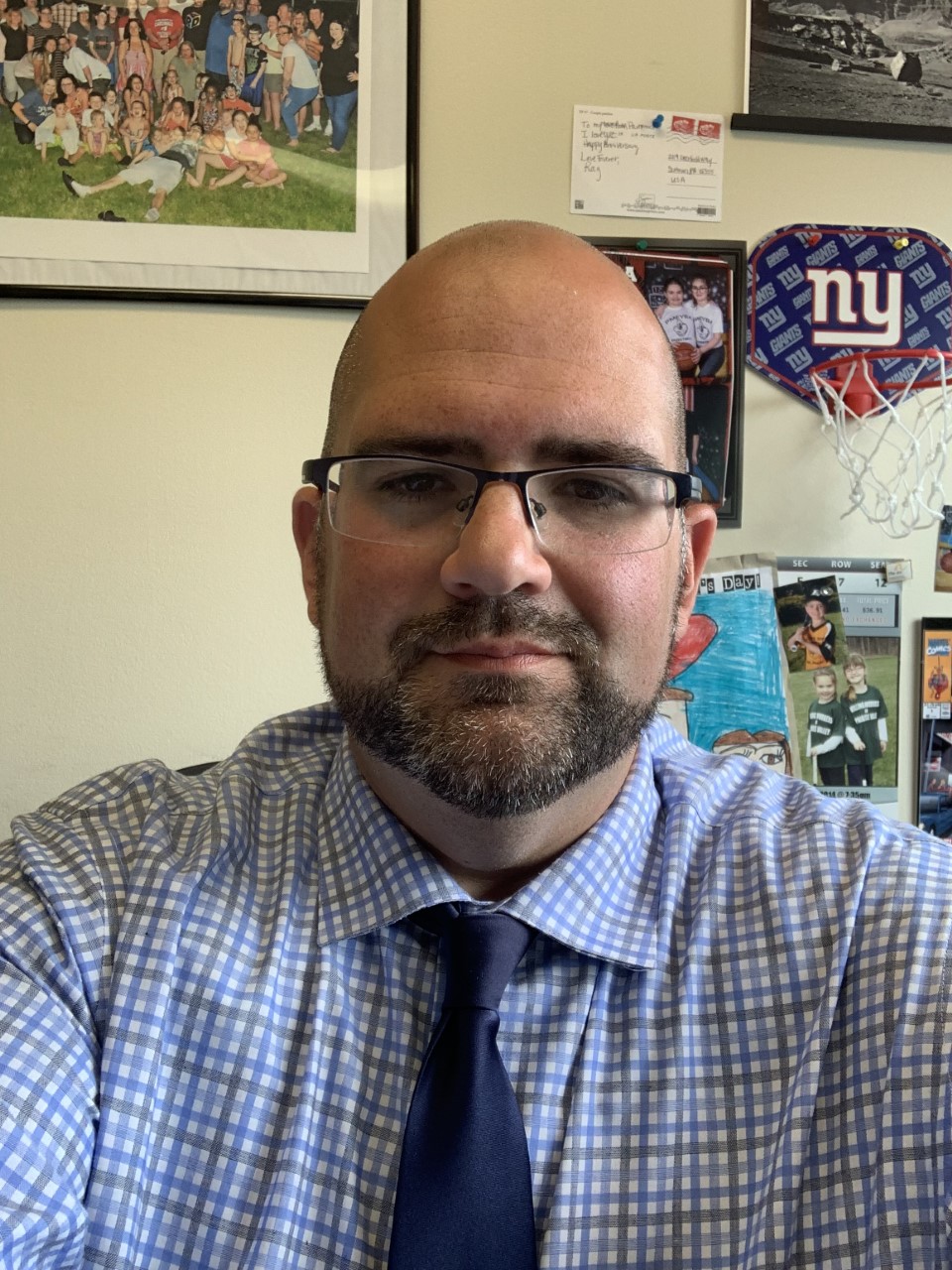
Background
School has always come with a set of challenges for my daughter, Lillian. Lillian was diagnosed with Dyspraxia, a developmental disorder that affects her coordination. She has a visual impairment and legally Lillian is blind in her left eye. After her diagnosis at the age of five, we discovered the areas in which she struggled, and our family began working with the school to implement a 504 Plan, a plan developed to assist a child with a legal disability receive accommodations in elementary and secondary education to ensure their academic success. The 504 Plan was created to aide support her day-to-day learning and activities and included the use of headphones to address her sensory issues. Standing desks alleviated her muscle tension and low muscle tone and preferential seating (sitting up front in the classroom) accommodated her visual impairment.
Middle School Challenges -- The Locker
Fourth grade brought its own unique set of challenges as she transitioned to the Intermediate School. She was now with older students, crowded hallways, and our current arch nemesis…lockers. While all students struggle with opening their combination lockers, Lillian had a particularly difficult time. The incoming students place pencils in their locker handles to hold the doors open until each learned how to use the combination locks. One by one, pencils began disappearing from the students’ lockers until only Lillian’s remained.
Every night we practiced at home as Lillian’s frustration snowballed. Her limited motor skills and inability to recognize small numbers on the combination lock began to make this task seem insurmountable. Lillian was singled out by the bright yellow, number two sign of disability (the pencil) she kept in her locker door. It did not take long for other students to take note and begin teasing Lillian at her locker. Lillian began to dread her morning routine, and eventually school all together. Every morning was a reminder of how she was different, and it began to take its toll. We discovered a simple fix, a lock that opens with a thumb print. This minor piece of assistive technology solved all of her fourth-grade woes. And the cost was only 50 dollars.
Technology Does Not Have to be Costly, to be Effective
People fail to realize that assistive technology does not have to be costly to be effective. While there are futuristic devices we see on the internet, or Elon Musk’s next million-dollar innovation on the news, they should not overshadow the accessibility of technology now available to all people in 2019.
Increased Advocacy on Technology Use
The Arc of Philadelphia is making the promotion and integration of Assistive Technology in daily living a focus of our work. We are working with the Coleman Institute on several initiatives that would make the benefits of assistive technology widely known throughout the community and with our legislative representatives.
Councilman Green’s office drafted a resolution that declares the importance of assistive technology throughout the City of Philadelphia, and we are a part of the team that is attempting to make Pennsylvania an Assistive Technology First State. Together, lawmakers and The Arc of PA are working towards legislation that would focus on assistive technology as a source of support and considered in every individual’s support plan. In addition, The Arc of Philadelphia is working with Comcast to become a tech coaching center where we will begin providing assessments and training on what assistive technology (AT) is available, how to use this AT properly, and where to access the funding. We are highlighting the need for this technology at every event, conference, and meeting we have to spread the awareness of how AT can benefit individual’s everyday lives.
Our Call to Action
To every person, organization, and company that supports a population in need for assistive technology -- THIS IS YOUR CALL TO ACTION. As a society, we are afraid of change, and so we often ignore the benefits of something new while reverting to past-norms. This mindset and approach are no longer acceptable. As leaders and servicers for these communities, you have the opportunity to be the agents of change that are so desperately needed to integrate assistive technology into the lives of the people that need it most.
When implemented correctly, technology reduces personal care costs, limits the amount of extraneous supports needed, and allows people to truly take steps toward independent living. Share the work you are doing to support this initiative. If you are not currently focusing your work in promoting AT for the populations you serve, redirect your agenda to do so because you are the link the AT field needs going forward. The future truly is now.
It Could Have Been Different for Lillian
Lillian never received her thumb print combination lock. The school was less than supportive of allowing Lillian to utilize this solution she desperately needed. Yet, one year later, Lillian was able to open her locker but that she had to endure a year of frustration and feeling like an outcast because of her disability. Imagine how her experiences at school could have been different if everyone was a little more aware, and supportive, of the benefits of assistive technology.
Author bio

Joe Mancini is the Executive Director of The Arc of Philadelphia. He is also the President of the Pennsylvania Council of Executives for The Arc of Pennsylvania. He can be reached at: This email address is being protected from spambots. You need JavaScript enabled to view it..



